Let me show you a magical place:
Sadly, Finkles, a 107-year-old hardware store in Lambertville, New Jersey, will have closed by the time you read this. It closed at the end of 2024, after over a century in business in the same building, one of what must have been the last of the continuously operating small-town stores from that period.
[Rachel] Finkle said her store sold its location on Coryell Street three years ago and has stayed in operation via a lease.
Finkles has 10 employees, including Rachel Finkle and her husband, Sven Helmer.
“I’m so appreciative for my longtime sales people. They are so knowledgeable. Each one of them has their little area of specialization and their cadre of customers that follow them. It wasn’t just my family that made it what it is,” Finkle said.
Her grandfather, the store’s founder, was a Russian immigrant. The store began as a scrap business and evolved into “the world’s most unusual supply house,” as touted on its website.
That loss of ownership, along with the pressure from big-box stores, led to the decision to close up the shop. It’s a shame to see experienced salespeople lose a job like this. Those people know things that few people know or may ever know. That knowledge has tremendous value, but the way we do business has made it wickedly difficult to monetize it. The value that our modern modes of commerce destroy should be accounted for in how we judge its productivity.
These photos are from 2021, when I visited Lambertville and didn’t even know this store was there. I just popped in and loved it. I went back the week it closed, but unfortunately it was closed the day I went. I can’t imagine it looked much different inside than it did in 2021, other than being emptied out from its out-of-business sale.
The 100-years banner hanging in 2021 had been replaced with a 105-years banner:
The inside, through the window, looked the same:
Across the canal that runs through Lambertville, there’s a Finkles warehouse:
And across the street they also had a lighting store:
That’s truly the end of an era. And it’s sadly one way in which Lambertville is less of a functioning urban place unto itself. It lost its last supermarket in 1997 (there’s a health food grocery store and a Latino market there), and now it has no hardware store.
Some locations of the major franchise hardware stores, True Value and Ace, look a bit like this, even the new ones. They retain this almost whimsical tightly packed interior style, and somehow manage to have a whole bunch of little bits and pieces that the home improvement superstores don’t bother to stock. Or, at least, they’re more likely to have someone who can identify a thing you bring into the store or know the inventory well enough to actually find the thing you need.
But this store and some of the other more recent but still relatively old hardware stores are organized in a manner which is distinctly urban and pre-automobile. Their narrow and tall aisles and small physical footprint are the physical expression of a place oriented around walking, more frequent and smaller shopping trips, and the kind of proximity that allowed people to quickly stop at a store on the way home, or go on a quick errand run, without the supersizing effect of requiring parking lots and the psychology of buying a lot of stuff at once.
In other words, a store like this is “outdated” in the sense that the big boxes have undercut it and that labor is more expensive than it used to be. But it’s “outdated” in the deeper sense of the old urban pattern itself being rendered obsolete by the related innovations of big-box retail and car-centric planning. I say this as an observation of how commerce has evolved, not as an endorsement, of course.
It’s difficult to say “I’m going to spend more money for the same thing at a store like this,” but maybe that’s an investment, not an expense. Maybe, though, we’re voting with our dollars in refusing to do that sufficiently to keep these places afloat.
In any case, I want to emphasize this point that a business like Finkles isn’t “old-fashioned” in some abstract sense, but rather scaled to a dense, walkable community of the sort that we’ve largely lost in America. Businesses like this both thrive in and help create communities like that, and I hope we sustain and make more of them.
Related Reading:
Thank you for reading! Please consider upgrading to a paid subscription to help support this newsletter. You’ll get a weekly subscribers-only piece, plus full access to the archive: over 1,100 pieces and growing. And you’ll help ensure more like this!




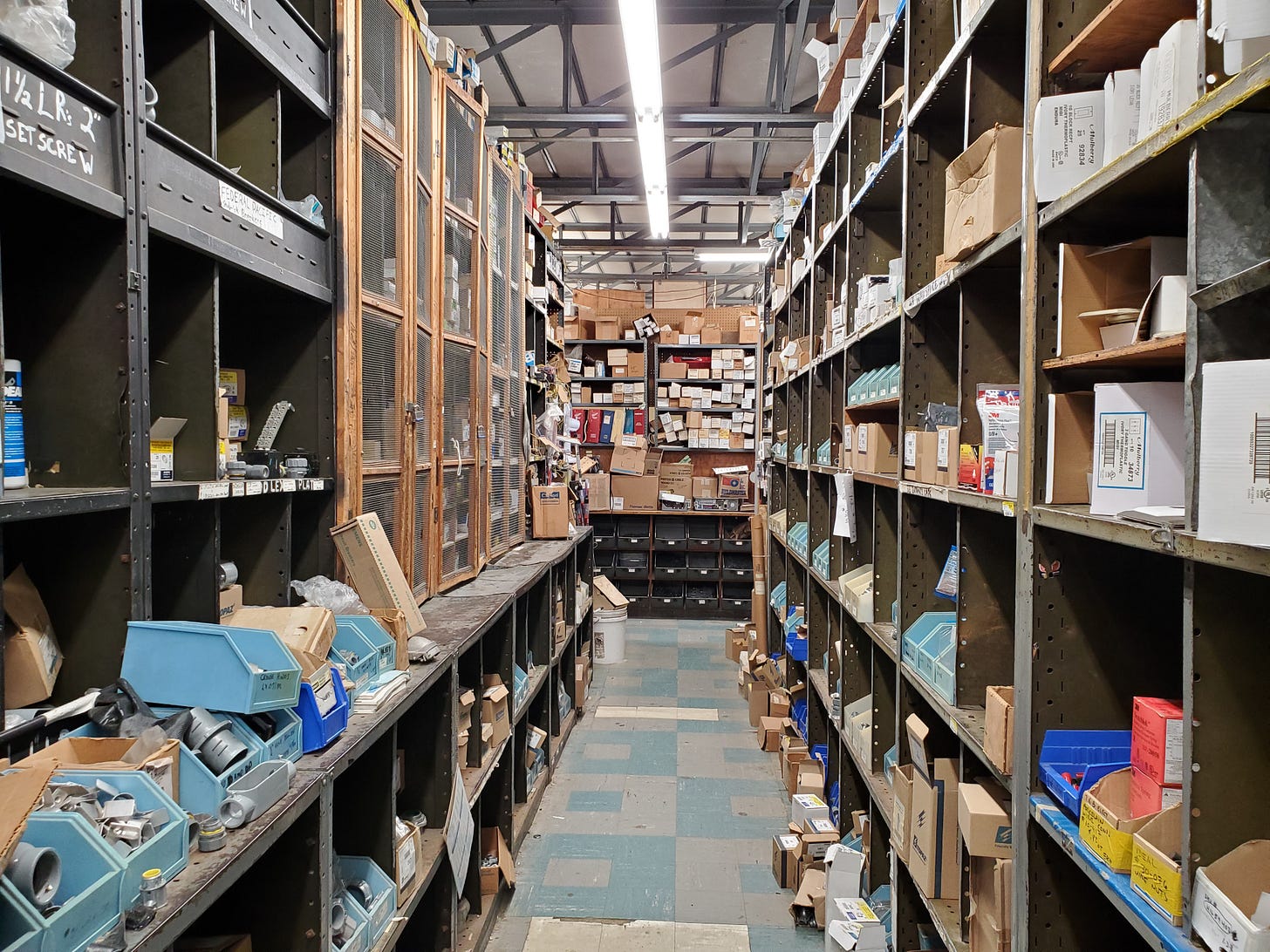
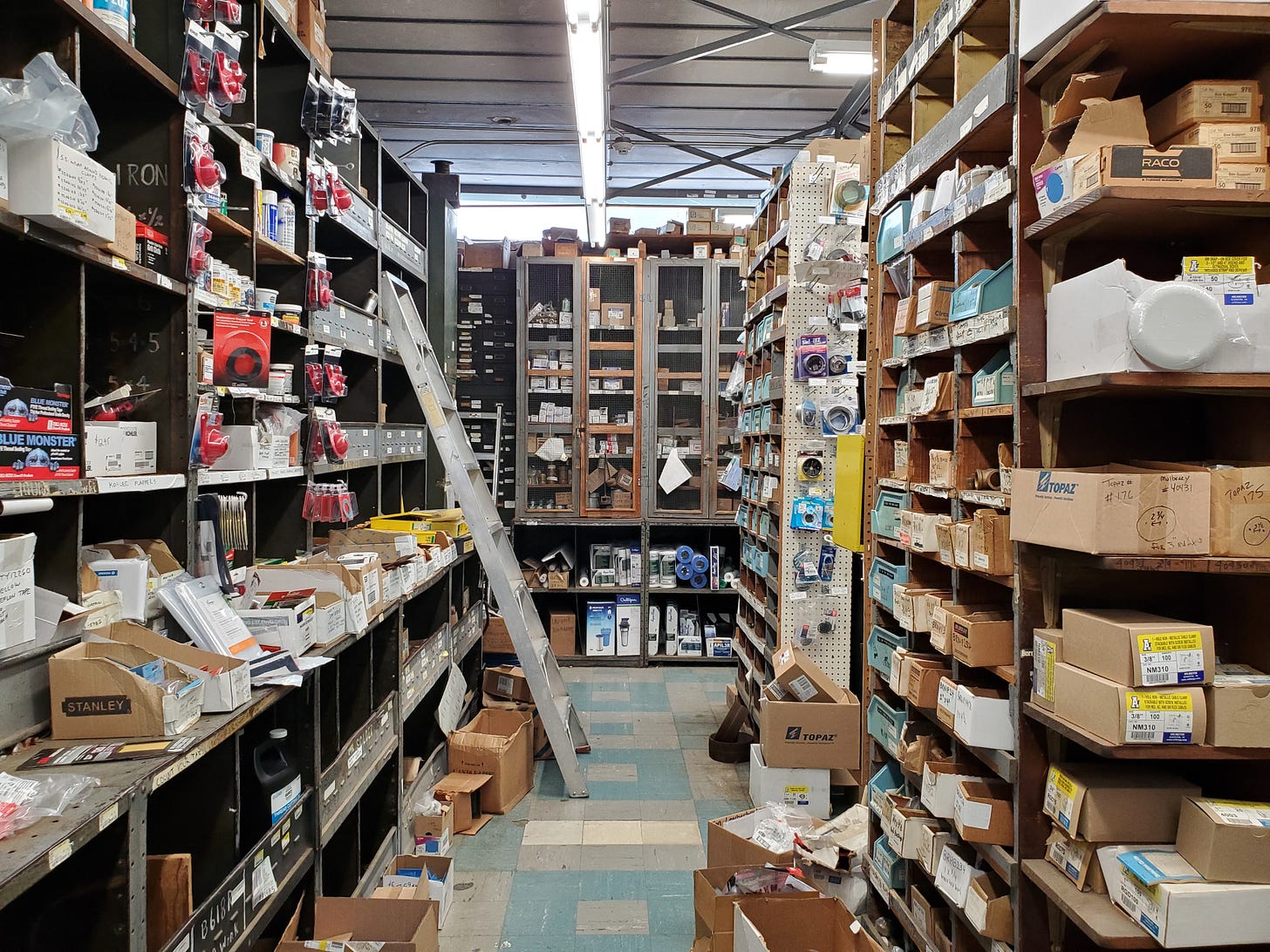
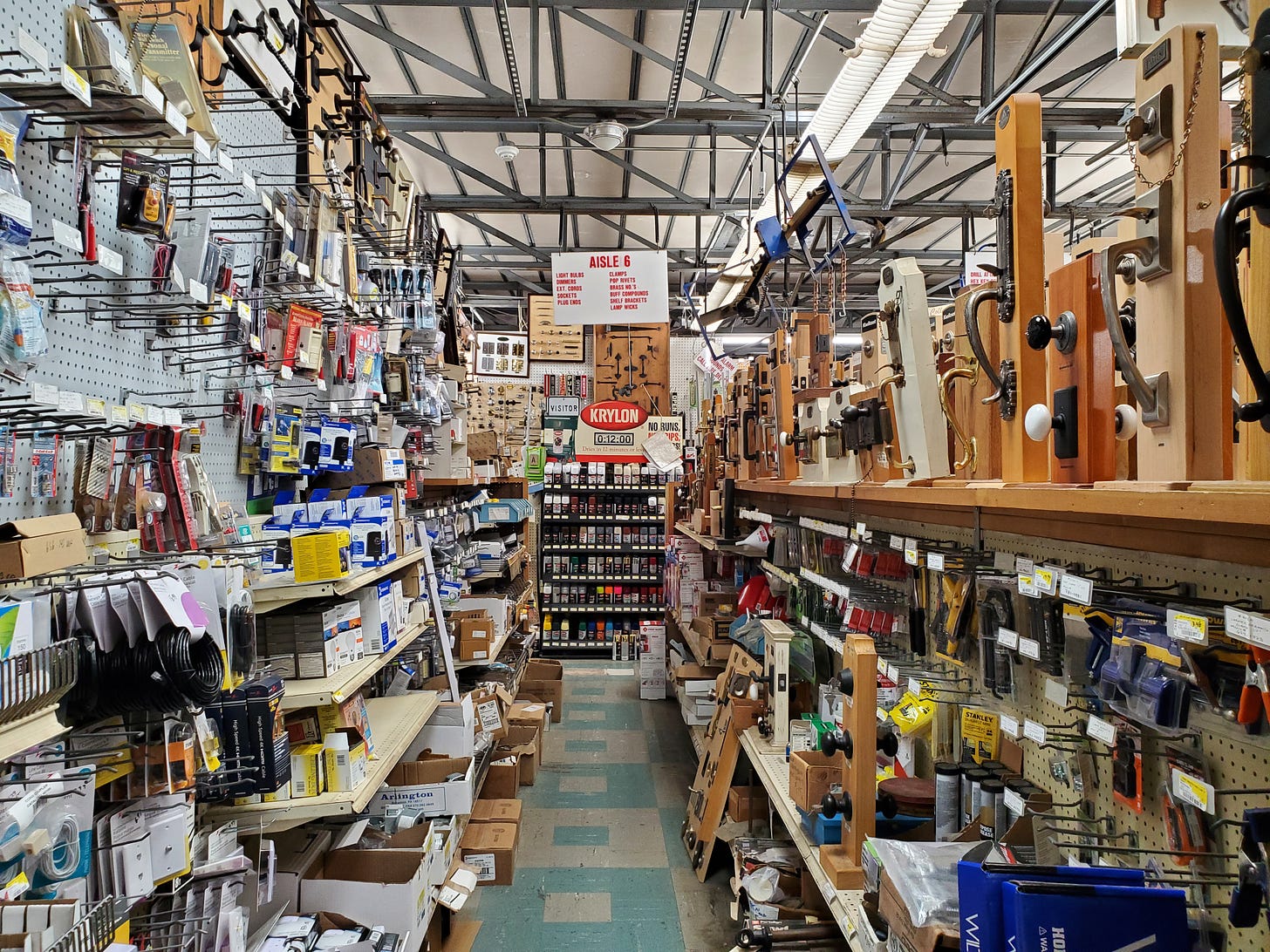
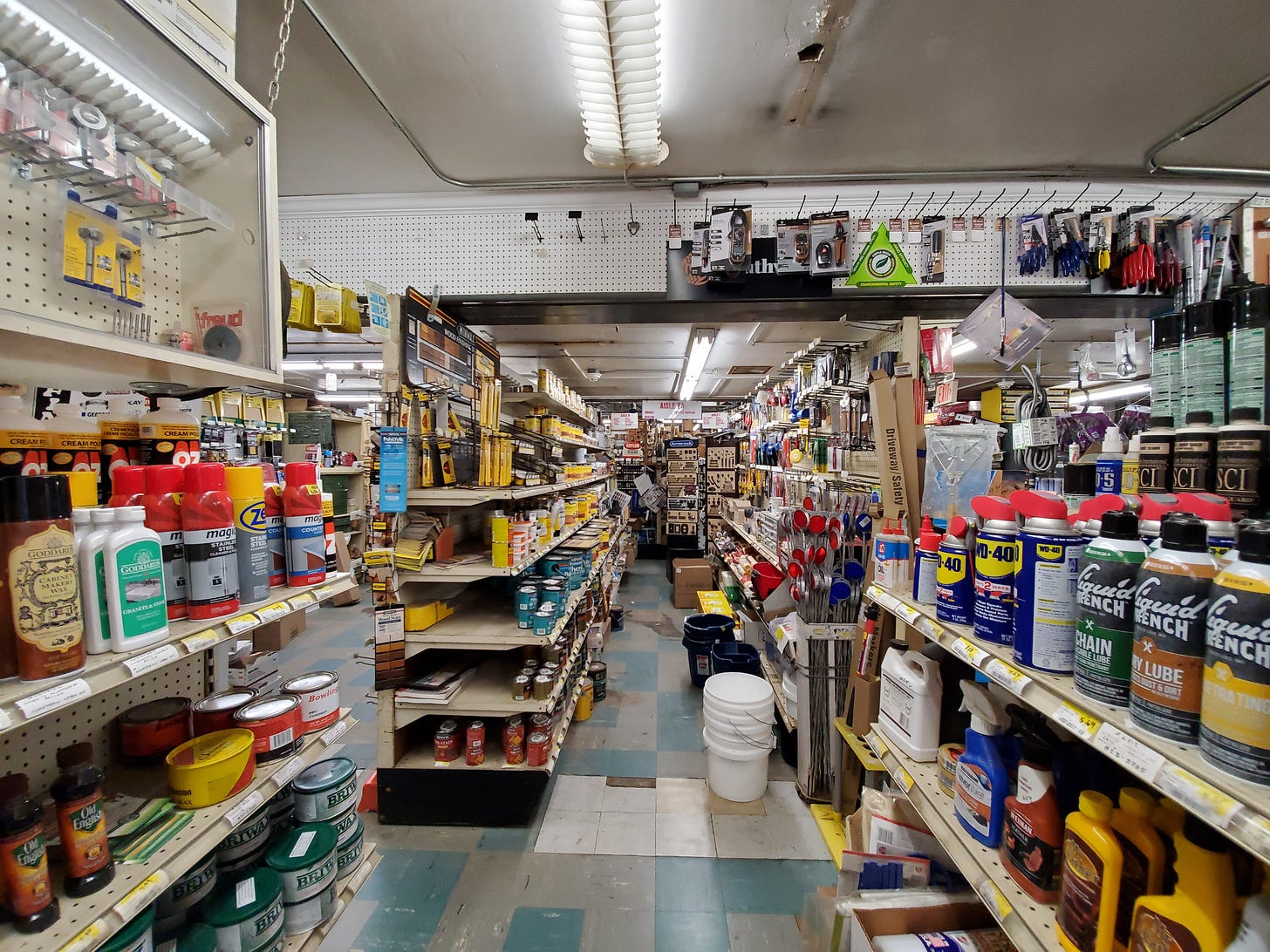
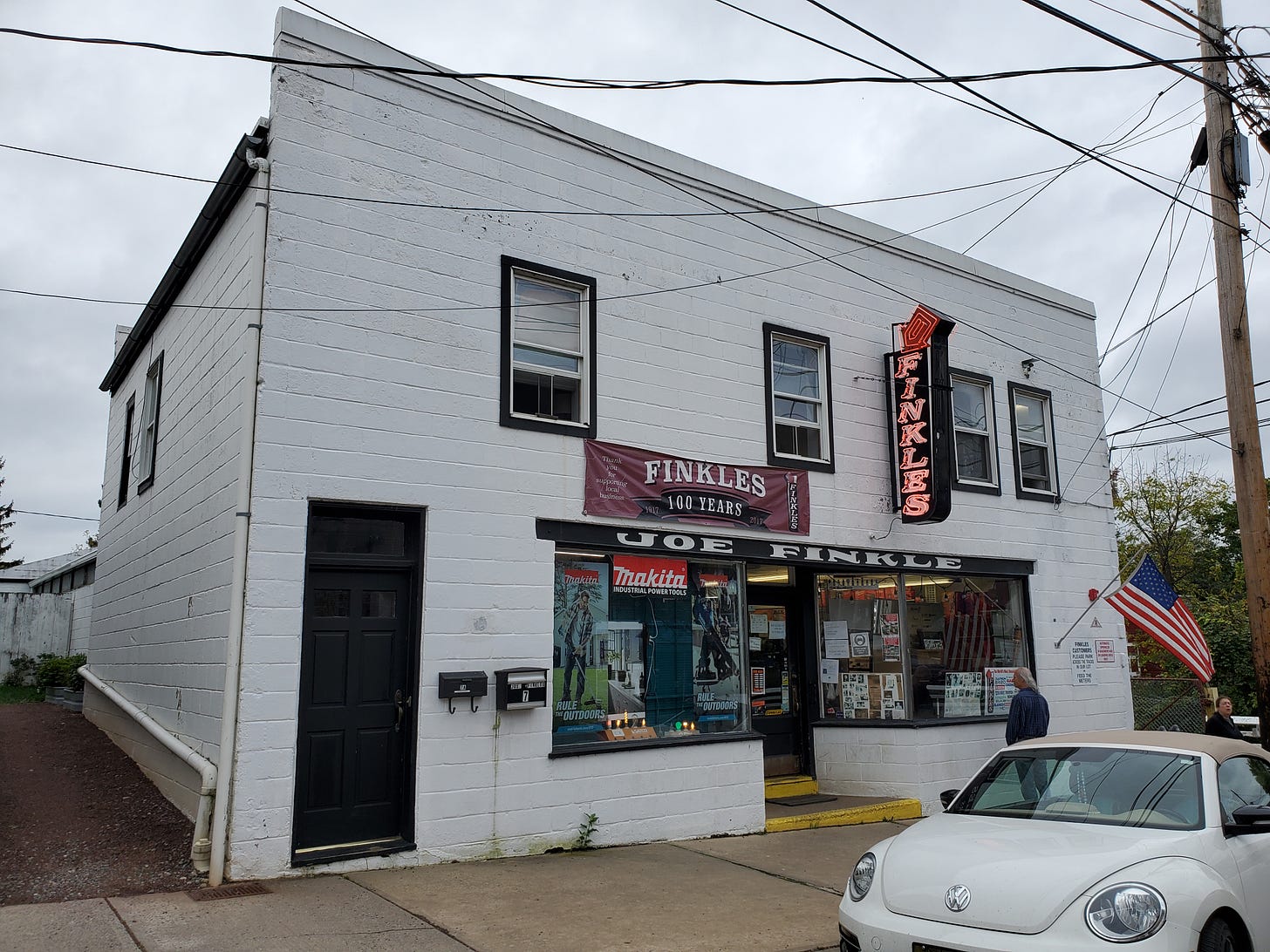
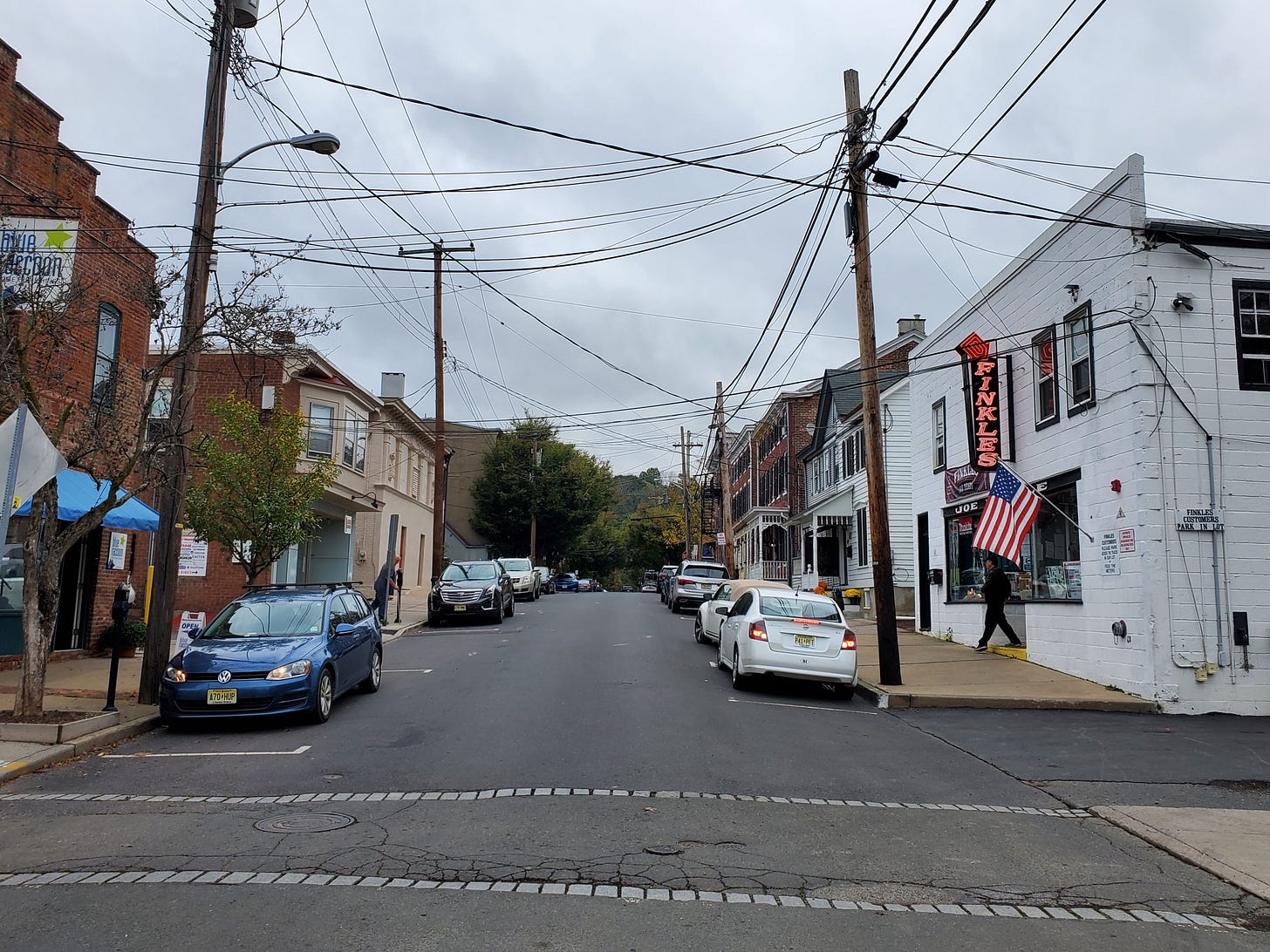
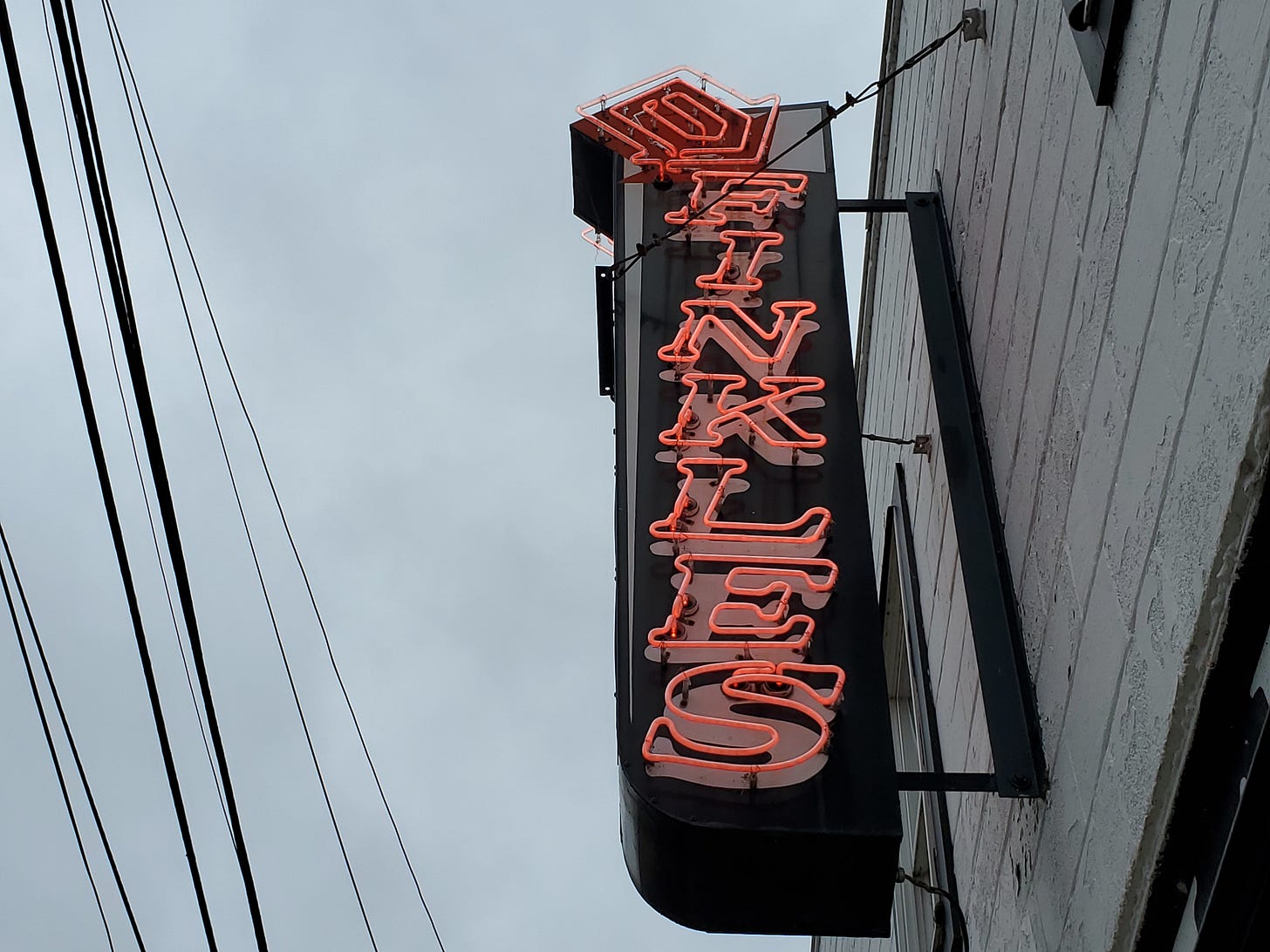
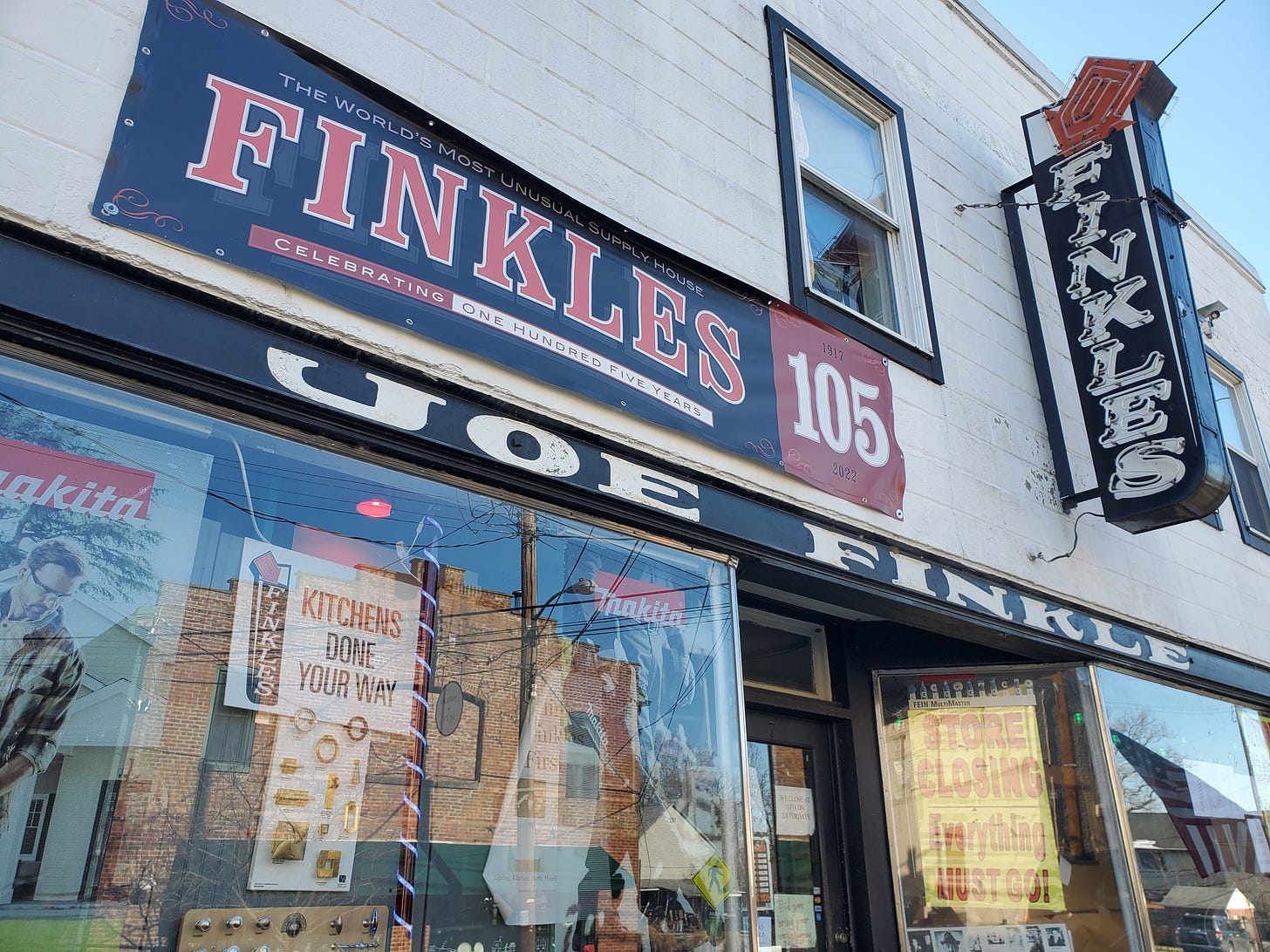
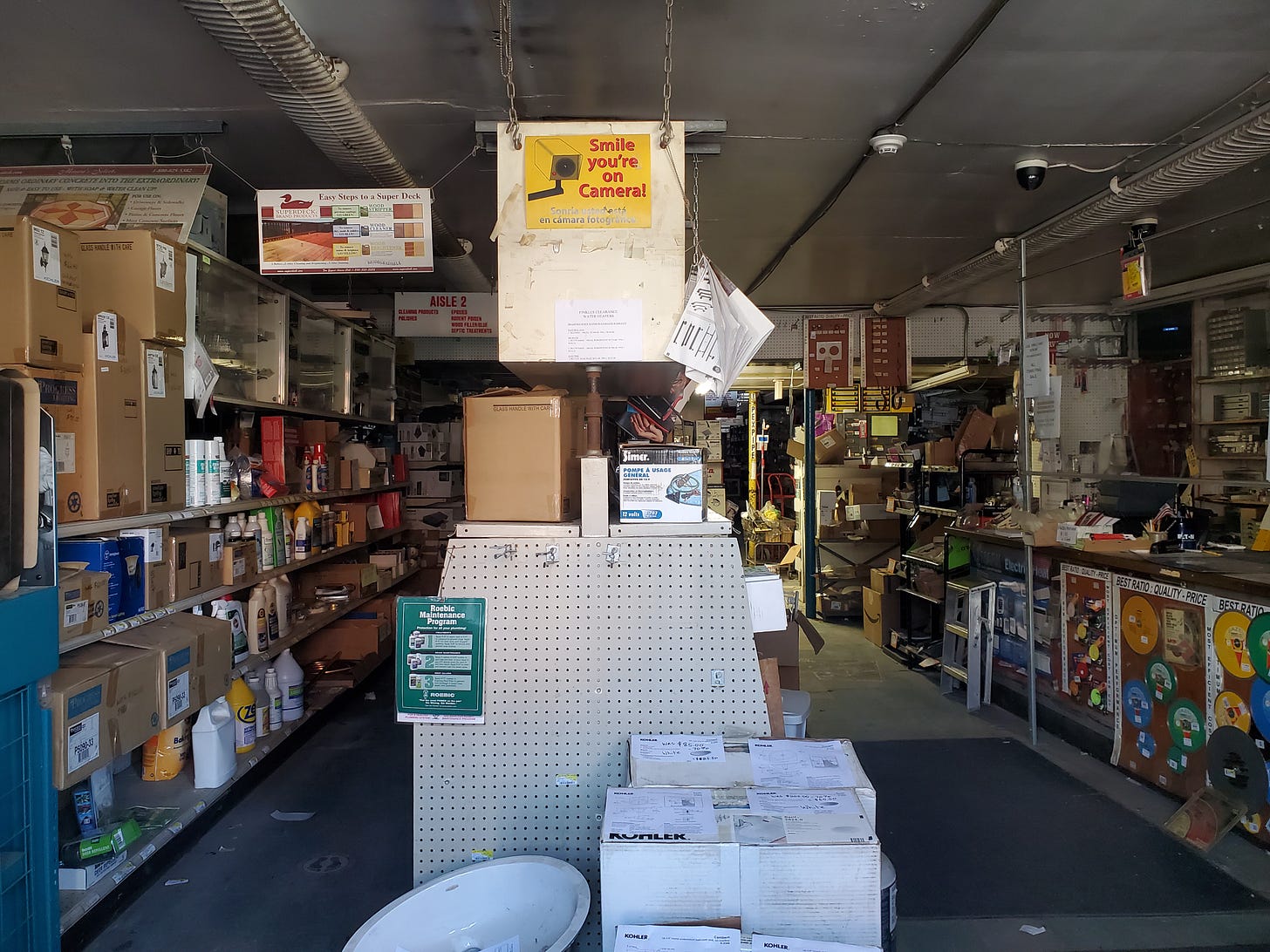
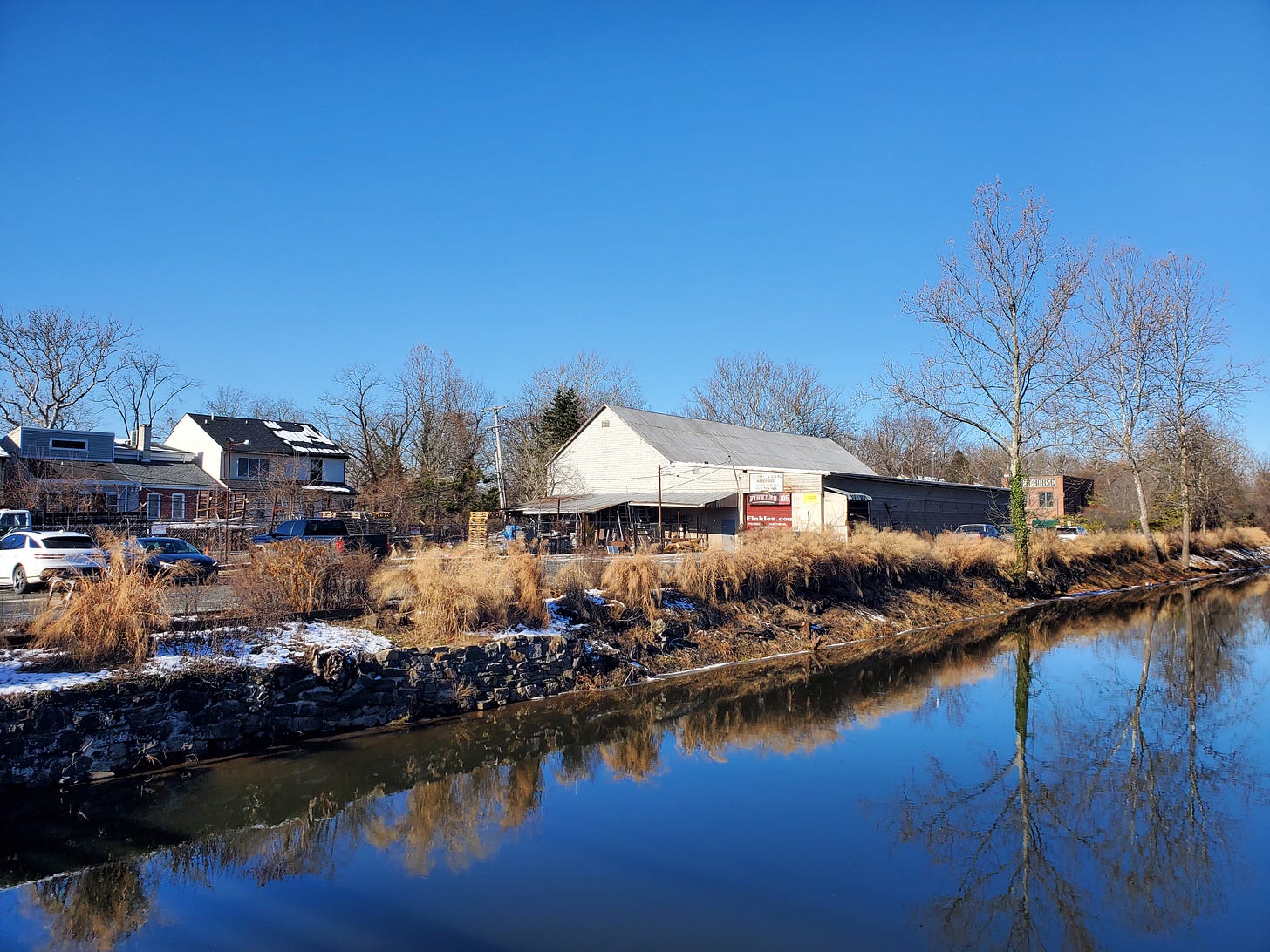
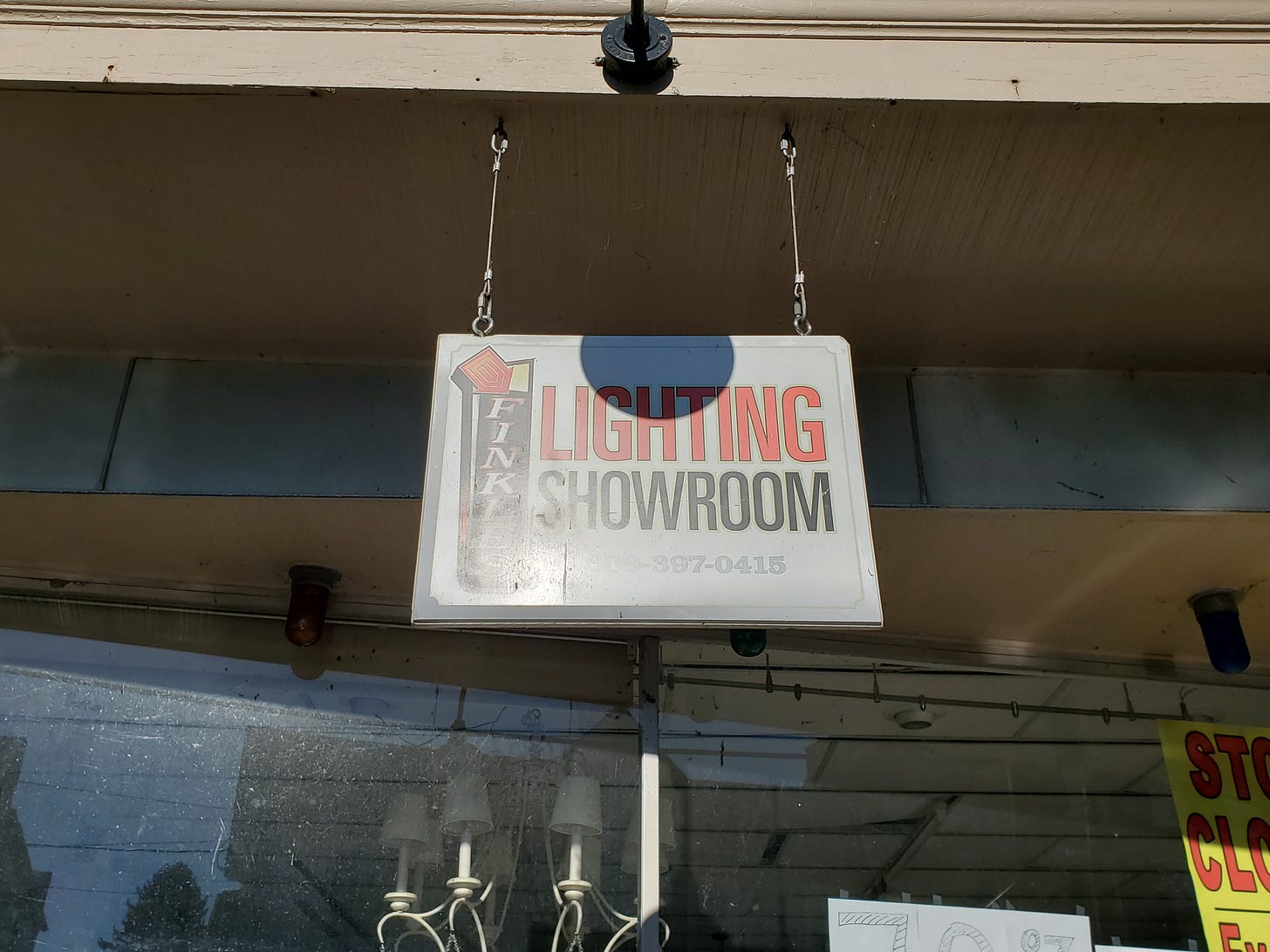
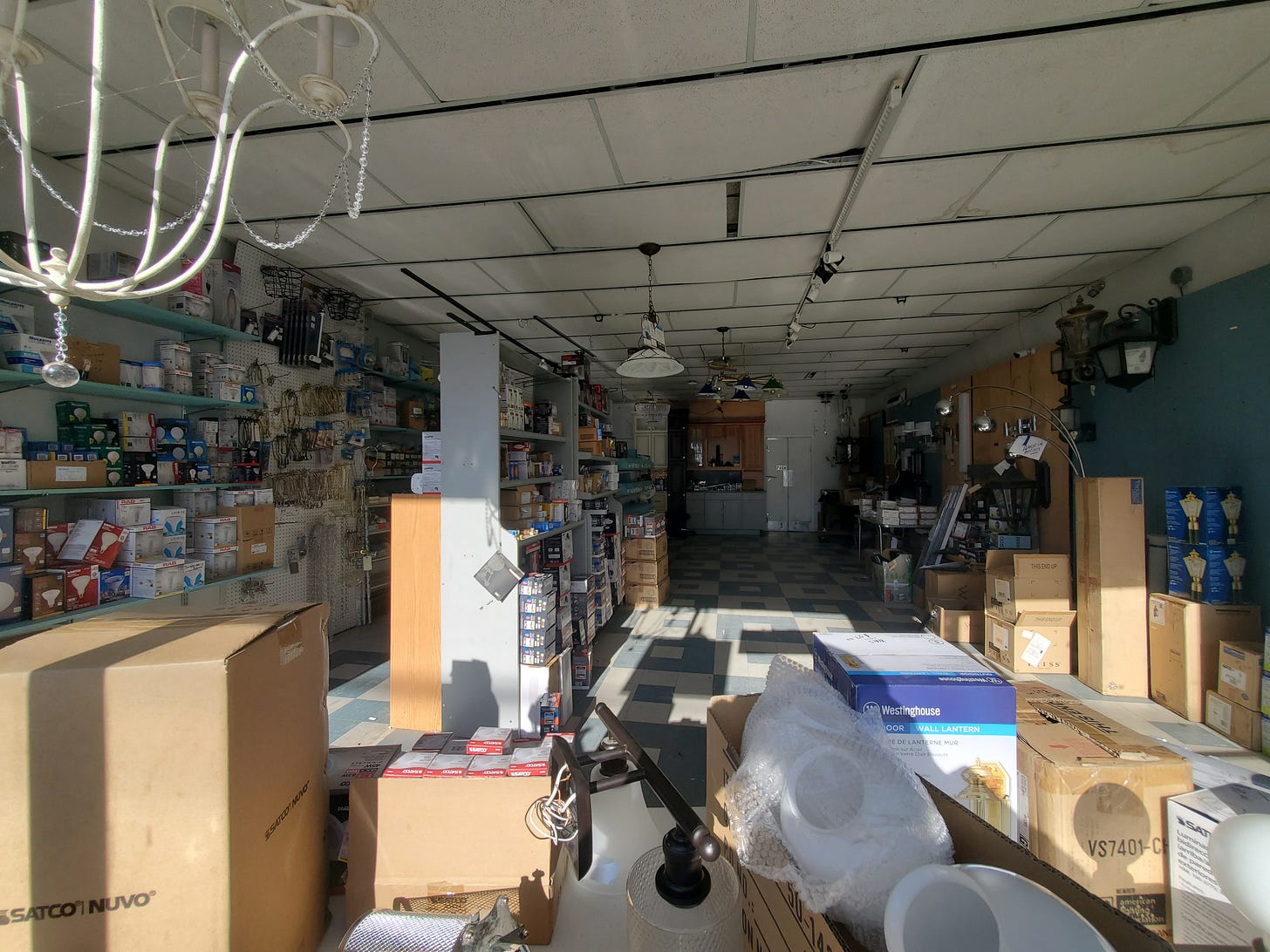
The upstairs apartment still used as a residence is even more of a rare leftover! Most downtown buildings used to have apts upstairs where downtown workers lived. Almost WFH, especially if you worked at the store below your apt.
We have a similar, fantastic hardware store in Chico, California like this. It’s been open for 60+ years in an 1871 building that’s in the heart of our downtown. Experienced employees that know everything and who are a godsend to anyone with a tricky issue, but especially those of us with old houses because they have the knowledge and all of the small hardware to boot. Beautiful old hardwood floors with all of their slants, scars, and stories. (Truly the vibe itself is worth having to deal with downtown parking.) I think it’s technically an Ace but it retains its own name and branding (Collier Hardware). It also has an upstairs area which has been many things over the years, including a theatre. It’s struggled to compete against e-commerce but it’s still going and I cheer them on and try to give them as much of my business as I can. like you said in your piece, it’s offering something still valuable though difficult to monetize.